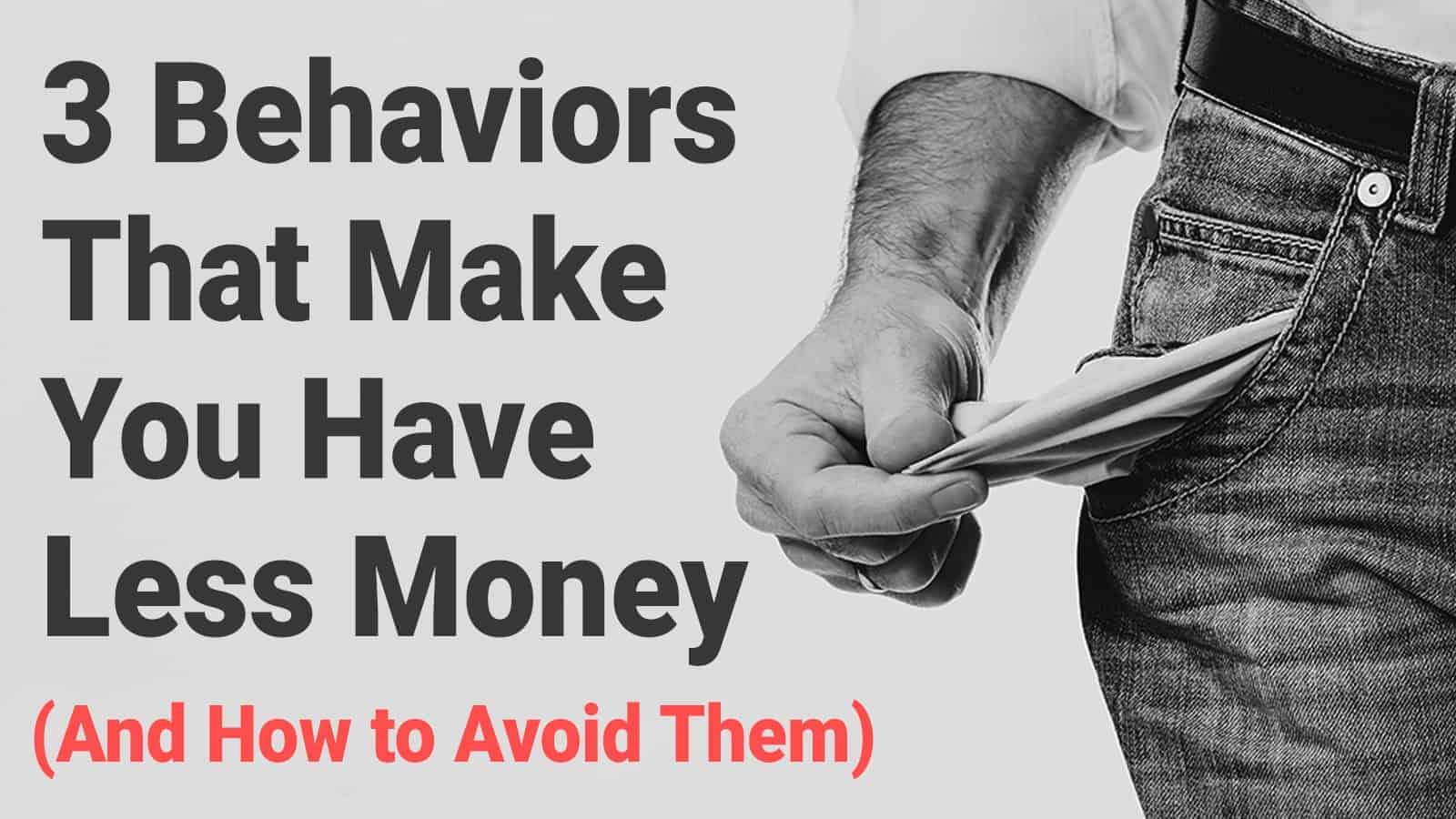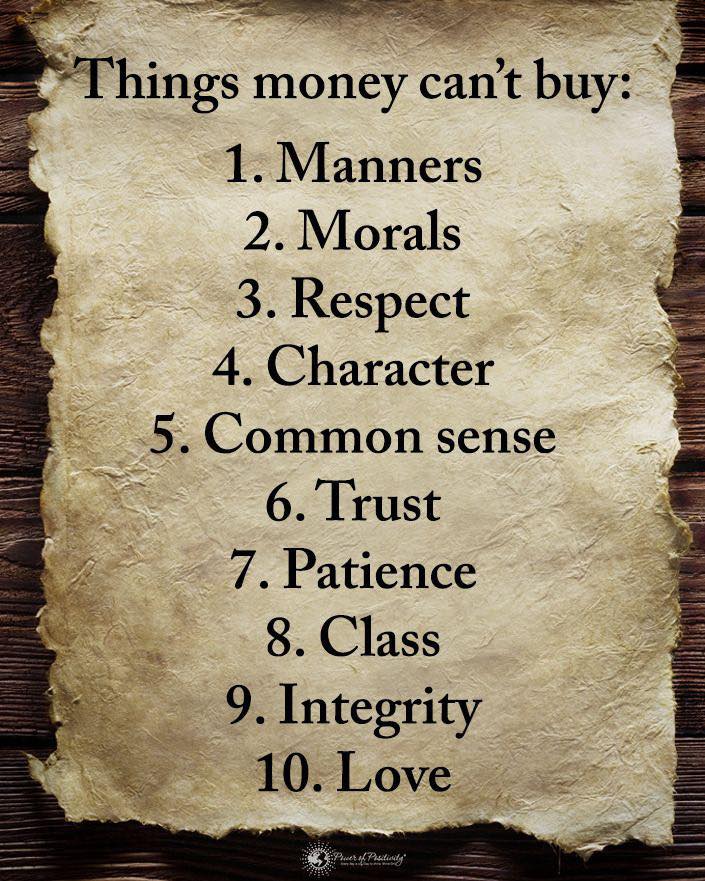Is having less money a constant struggle for you? Do you find it hard to save despite how much you earn at work? You might be embracing habits and behaviors that reduce money instead of growing it. You might be earning good money but your attitude towards your finances might need some fine-tuning if you find that you’re not spending it on (or setting it aside for) worthwhile things.
According to a study at George Washington University’s TIAA Institute and the Global Financial Literacy Excellence Center, most people don’t have a firm grasp of their financial health. Some 1,043 adults were asked to answer 28 questions in a survey but only 49 percent of these questions were correctly answered. Less than 20 percent also got fewer than seven correct answers, which amounts to less than 25 percent.
To be financially healthy is not just about having a lot of money in your bank. It’s also about having positive habits with money. Here are some behaviors that you may be surprised to learn are actually affecting your financial wellness.
3 Behaviors That Make You Have Less Money (And How To Avoid Them)
“Living on less than you make is a matter of controlling yourself, not a matter of math.” – Dave Ramsey
1. You don’t have a positive perspective when it comes to money
Having money to afford nice things is, well, a nice way to live. But if your motivation for having money is mostly because you want to maintain the status quo and make your life fulfilling, then you could easily fall into a trap.
If you lost all that money today, how much of your life would change? The truth is, only a few things should be different in your life whether you have more than enough or lack money.
Do you remember what it was like when you got your first paycheck? You were likely excited to spend it all on the things you wanted. But then you quickly realized you had very little money left once you paid your bills, rent, and loans.
Now, apply this situation to the way you handle your finances every month. Do you always get the surprise of your life whenever you open your credit card bills and realize you’ve spent more than you anticipated? You thought you would have enough to spend because you earn well, but you realize you already spent it on credit. This is the kind of perspective that ruins the financial health of most people.
A Healthy Versus Unhealthy Perspective on Money
Someone with a healthy financial perspective knows that they shouldn’t be spending beyond what they earn. These are the individuals who also know their numbers very well so they can keep their spending in check. These are the very people who, despite their wealth, still keep working and pushing themselves instead of growing complacent about how much they earn. It is not just money that drives their life.
It’s easy for people to lose their perspective about money, especially if they regularly earn a substantial amount. But do you ever notice how millionaires or billionaires enjoy their wealth? They have more than enough to live every day in luxury. They can enjoy their life as if they’re in on a constant holiday if they want to, but that’s not what they do.
Instead, they keep working and improving their business or company. Yes, they might take some vacations, yet they do not make that their lifestyle. Instead of thinking they can vacation for the rest of their life since they are super rich, they’re on the grind most days.
These multi-million business leaders have the right perspective about money. They maintain a balance in their earning and spending. Even if you earn in the high digits, you can still feel an imbalance and your life may still be incomplete if you consume more than you earn. Unfortunately, for most people, having a surplus of money feels like a license to spend with abandon.
So, how do you fix this perspective on money?
- Keep track of your daily spending.
- Know how much money you have left after paying off your obligations and living expenses.
- Divide any surplus money to make it last for 30 days. Whatever you’ve got, that is your daily spending for the next month.
- Every time you go out to dine, shop, or enjoy a leisure weekend, keep this amount in mind to keep a balanced perspective on your money.
- If you’re about to buy a pair of shoes, think of how much its price would eat up your daily budget. If you indulge in the purchase, how much would you have leftover? Would you be spending into next week or next month? If so, put the item back on the shelf.
2. You have an unhealthy attachment to what money can buy
How often do you dine out or buy an expensive latte? It might not seem harmful if you look at buying a Starbucks Grande as a reward. If you feel that you deserve to give yourself this treat after a long and challenging day at work, then the indulgence might not seem like a bad thing.
It might seem like a worthy expense if you dine at a fancy restaurant with your friends every weekend. You need to unwind at the end of the week and you feel you also deserve these simple pleasures in life. So, what better way to celebrate a tough work week than to try out the latest food craze with your group, right?
However, if you add up how much a daily Starbucks latte or a weekly dining splurge is costing you, you could be shocked to learn how it’s really affecting your financial wellness. This is not to say that you shouldn’t indulge. However, you might be manifesting addictive behavior if you place too much value on getting these pleasures. If your perspective is that you “need” to get a daily Starbucks fix, this could be an unhealthy attachment.
Now, these addictive behaviors do not have the same serious effects as an actual addiction or substance abuse problem but it might be causing your finances to spiral out of control. Assistant professor of psychology at San Francisco State University, Ryan T. Howell, Ph.D. says that at least 10 percent of adults have a compulsive buying or spending disorder. It’s how shopaholics end up with piling bills.
Points on Balanced Spending
The one trait common among compulsive spenders is that they feel better after rewarding themselves. They also think that their indulgences are good for their wellbeing. If you find yourself regularly spending beyond your means to “reward” yourself, keep these points in mind:
- Experts say that it isn’t wrong to allow yourself the pleasure of enjoying what you earn. However, as you enjoy your money, you should also balance it out by controlling your spending.
- Pay attention to your numbers and your credit card bills even if you feel good about having money.
- Be realistic about your spending habits and regularly review your daily budget so your expenses don’t exceed the money you make.
- Before paying for something, always ask yourself if you really need this item or service.
If you make it a habit to evaluate your budget and daily spending, you will likely find a way to curb your addictive personality and unhealthy attachments to money.
3. You refuse to deal with your compulsive buying disorder
Oniomania or compulsive buying disorder (CBD) is an actual psychological condition. Experts have been looking into this disorder for years and have found that its rate is actually increasing every year.
When left unchecked and uncontrolled, CBD may be linked to mood and anxiety disorders, impulse control and eating disorders, as well as certain substance abuse problems. According to World Psychiatry, this condition has no standard treatment but some experts have tried to use psychotropic medication for their patients in the form of antidepressants. Others have also tried cognitive behavioral therapy (CBT).
However, the study also stated that medicating alone will not solve the problem. If a person has been diagnosed as a compulsive spender, the first step to curing this disorder is to actually acknowledge that he or she has a problem managing money.
- Hiding your purchases from your spouse
- Buying too many things you don’t really need
- Spending a big chunk of your income on these items
- Expecting these purchases to improve your life or give a false sense of security
- Experiencing conflicts in your relationship due to the way you spend your money
Realize, however, that acknowledging you may have a problem with handling your money is not a sign of weakness. Admitting your mistake humanizes you in a way that can be humbling. It can teach you about being financially mature, too.
Four Steps to Curbing a Compulsive Spending Disorder
Refuse to Use Credit Cards
To be proactive about managing your finances, you might have to cancel your credit cards and stop issuing checks until you get your funds back on track. Cards and checks are tools that can fuel compulsive spending disorder. Credit cards, especially, make the freedom to buy things easier but the burden of paying off a debt a lot harder. So, you have to learn to let go of your dependency on this tool.
Consider Therapy
If your problems with money are still going haywire despite cutting your credit cards, then you might have to submit yourself to therapy and a treatment plan with a professional. You will recognize this need if your buying experience brings more negative than positive feelings in the long run.
As with recognizing you might have problems handling money, acknowledging that you may need a therapist doesn’t make you weak either. It takes a strong person to subject themselves to the process of therapy, as it’s never easy to examine what could be wrong with you to push you to spend unwisely.
Find a Support Group
If a therapist is not enough, you might also have to undergo a 12-step program, such as Debtors Anonymous. Or, you could look into a group on Facebook or message boards where you can discuss your difficulties. It should be helpful and therapeutic to open up to a support group that understands what you’re really going through.
Work with Collection Agencies
Also, try contacting a collection or consumer agency instead of avoiding these companies. Some of these agencies might offer credit counseling and debt management programs for free to help you get your finances back on track.
Final Thoughts Of Behaviors That Make You Have Less Money
It might seem challenging at first to overcome problems and behaviors that lessen money. But the more you ignore these, the longer it will take for you to get out of this rut.
Have a positive mindset, develop patience, and practice diligence. These will help you become more consistent in managing your finances. With determination, you can succeed in getting out debt.















 Community
Community

